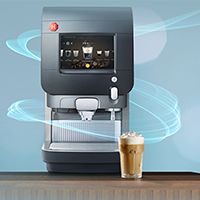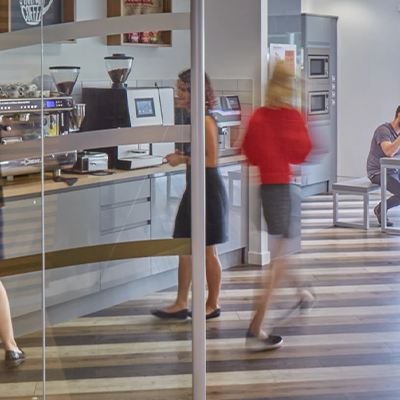Hygiene in the workplace
Top 4 Tips: How to protect yourself against viruses and pathogens in the office
Hygiene is always important in office and catering environments, in light of recent events it’s now understandably top of mind, especially in the healthcare and workplace sectors. Pathogens and viruses can be transmitted through droplets – either directly from a cough, or by coming into physical contact with someone who has the virus and then touching your mouth, nose, or eyes.
This creates a lot of complications in a work environment where people are in close proximity for long periods of time, which means extra measures need to be taken to protect yourself against transmission in the workplace. Below are some tips to ensure good hygiene in the workplace.
Disinfect surfaces regularly
When arriving at your desk in the morning, beginning or ending a meeting, or going to the gym – wipe down the surfaces with a disinfectant to make sure that any lingering pathogens are killed.
The same caution should apply to the care of your coffee corner and coffee machine – by regular cleaning and maintenance of the machine the risk of coming into contact with viruses can be avoided.
With this in mind, closed systems, such as the Cafitesse Liquid Roast system, offer the highest hygiene standards. The machine is easy to fill, and its simple maintenance requirements are compliant with an HACCP certified environment.
Wash your hands
Washing your hands should be built into your daily routine. When you get into the office, go for lunch, return from a meeting, or head home, the NHS recommends thoroughly washing your hands with soap and water for at least 20 seconds will kill viruses that could be on your hands.
If water and soap are not available, you can also use an alcohol-based hand sanitiser. You should also avoid touching your eyes, nose or mouth if you haven’t recently washed your hands.
Get Personalised AdviceCough and sneeze carefully
Both coughing and sneezing can release the pathogen into the air – for this reason, the NHS recommends that you cover your mouth and nose with either a tissue or your sleeve (not your hands), then dispose of any used tissues into the bin straight away and wash your hands.
The NHS lists the symptoms of coronavirus as being:
- A cough
- A high temperature
- A shortness of breath
While having these symptoms doesn’t mean the person definitely has the coronavirus, as these are typically the symptoms for common illnesses such as cold and flu, it is advisable to be cautious and to avoid contact with anyone displaying potential signs of this illness.
It’s always important to be prepared – at the beginning and end of each work day, keep in touch with your manager to make sure you’re aware of your business’ plans. If you have a laptop, make sure you take it home with you in case there is a need for you to work from home.
By practising good hygiene in the workplace you can lower your chances of catching the virus, but make sure you also encourage those around you to do the same.
The advice above is in line with the NHS guidelines as of 13th March 2019, which you can read here: https://www.nhs.uk/conditions/coronavirus-covid-19/









